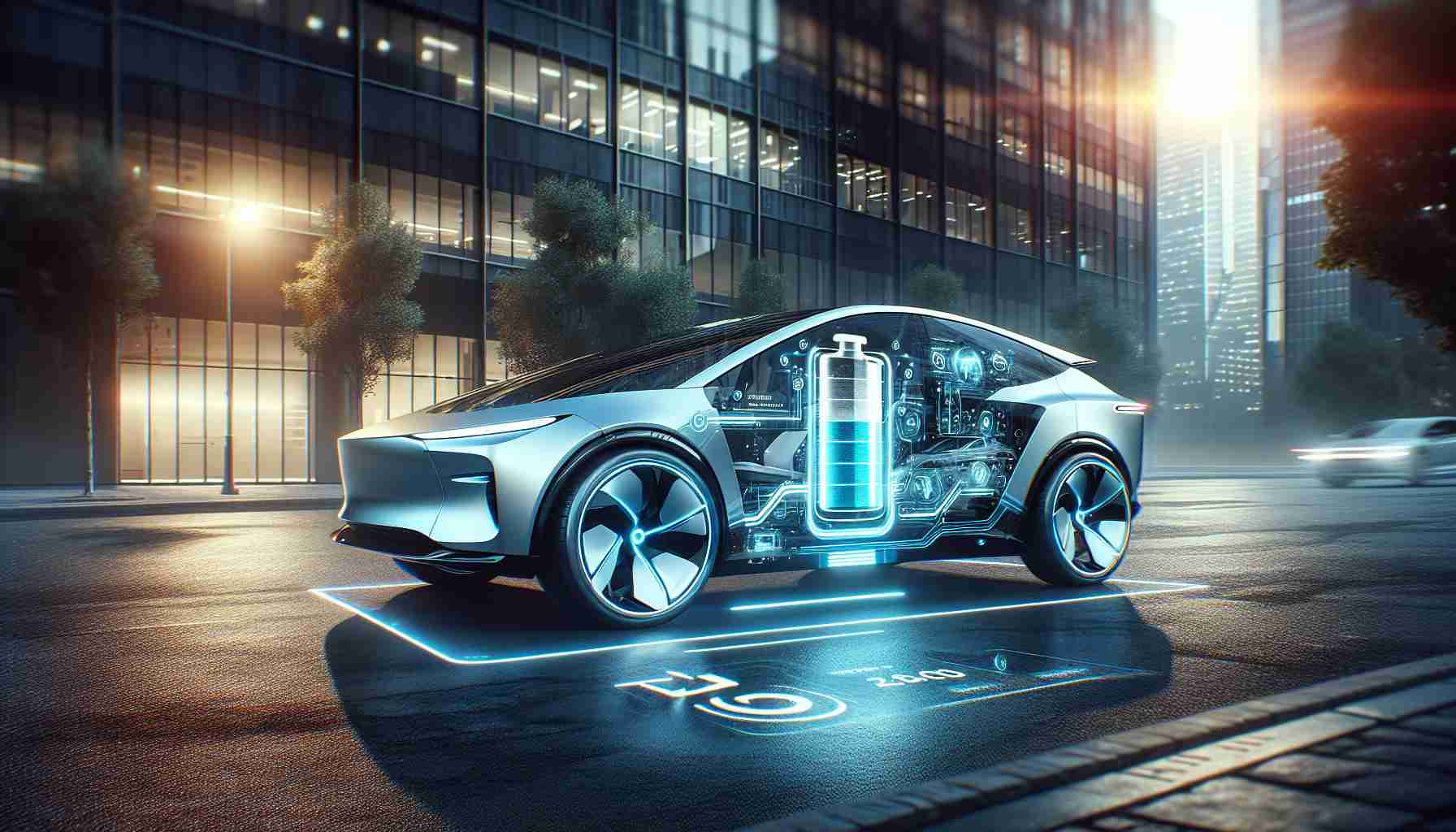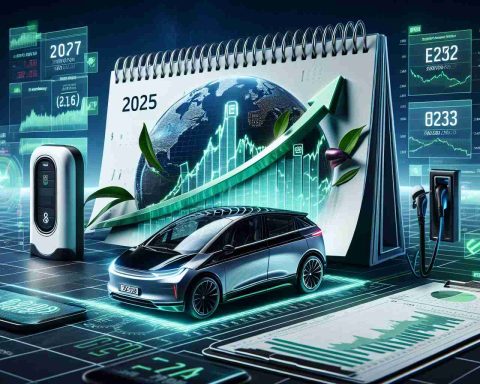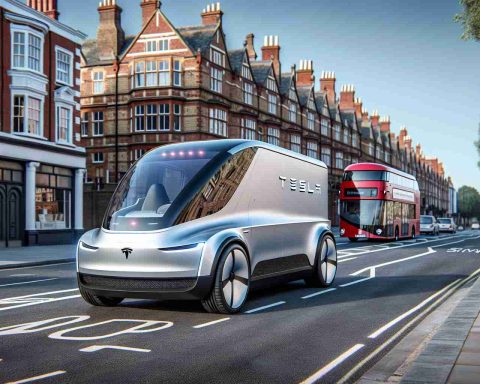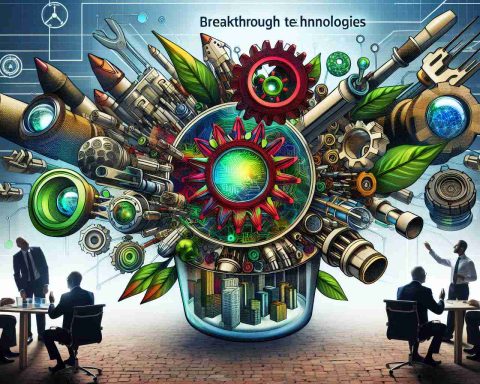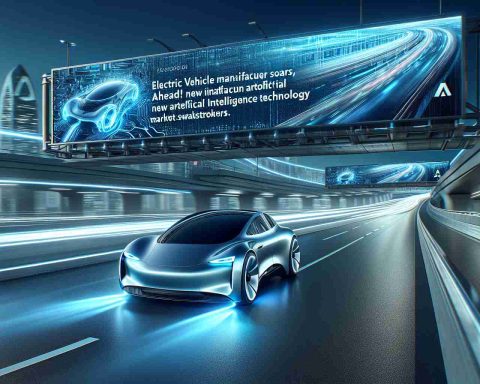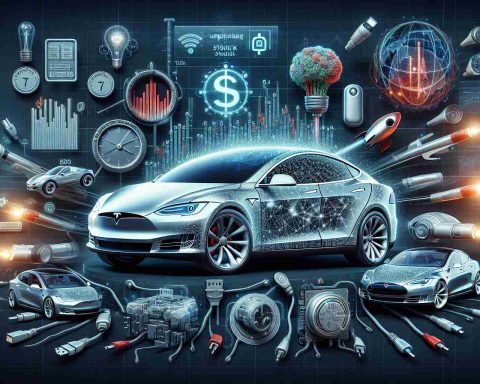Electric vehicle (EV) batteries are now estimated to last a remarkable one-third longer than earlier predictions. This breakthrough not only alleviates consumer fears over expensive battery replacements but also extends the operational lifespan of electric cars significantly.
Carried out at the prestigious SLAC-Stanford Battery Center, this innovative research dismisses previously held misconceptions about battery durability. The study reveals that traditional testing methods fall short in accurately reflecting real driving conditions, which can mislead consumers regarding the true performance of their EVs.
What does this mean for future consumers? As confidence in battery reliability boosts, we may witness a substantial rise in EV sales. According to forecasts, electric cars could account for a staggering 30% of global automobile sales by 2030, thanks to these enhanced battery lifespans.
Moreover, the environmental benefits could be significant. An increase in battery longevity may lead to less frequent production and disposal, thus lowering the ecological footprint tied to lithium and cobalt extraction. This shift underscores the importance of innovation in promoting sustainability across multiple sectors.
In summary, the extension of EV battery life not only addresses a primary consumer concern but also heralds a transformative era in the automotive industry, paving the way for a greener and more sustainable future. As advancements unfold, they promise not only to reshape consumer choices but also to have a lasting impact on the global approach to clean energy solutions.
Broader Implications of Enhanced EV Battery Life
The prolongation of electric vehicle (EV) battery life is not merely a technological upgrade; it presents significant societal and economic transformations. As confidence in EV performance improves, there is likely to be a cascading effect on urban planning and infrastructure. Cities may increasingly prioritize charging stations and establish EV-friendly policies, further integrating electric vehicles into daily life. This shift could also bolster the job market, with roles emerging in EV manufacturing, battery recycling, and charging infrastructure development.
The financial benefits associated with longer-lasting batteries are profound. Consumers may find themselves spending less on vehicle maintenance and battery replacements, effectively enhancing the appeal of electric cars to a broader demographic, including budget-conscious drivers. This democratization of electric mobility could reduce fossil fuel dependence at an unprecedented scale, aligning with global climate goals.
Environmental repercussions are equally noteworthy. Reduced mining and manufacturing frequencies would likely decrease the demand for valuable resources such as lithium and cobalt, thus alleviating some pressure on ecosystems. Notably, this innovation may also catalyze stronger recycling initiatives, as the industry evolves toward closed-loop systems that recover essential materials, further reinforcing sustainability.
In summary, the advancements in EV battery technology signify a pivotal shift, where economic, environmental, and social facets converge to redefine the future of transportation and energy consumption. The evolving landscape promises not just to cultivate consumer trust but to catalyze a comprehensive transition towards a sustainable global economy.
Breakthrough in Electric Vehicle Batteries: A Game Changer for Sustainability and Sales
The Evolution of Electric Vehicle Battery Lifespan
Recent research conducted at the esteemed SLAC-Stanford Battery Center indicates that electric vehicle (EV) batteries are now projected to last an impressive one-third longer than previously anticipated. This significant finding is expected to ease consumer worries regarding costly battery replacements and greatly extends the operational lifespan of electric vehicles.
Bridging the Gap: Real Driving Conditions and Testing
Traditionally, testing methods for EV batteries have not accurately reflected real-world driving conditions, leading to a gap in understanding the true performance capabilities of electric cars. The recent study at SLAC-Stanford reveals that the advancement in battery technology is crucial to enhancing reliability perceptions among consumers. This newfound confidence is poised to have a substantial impact on the EV market.
Impact on Consumer Behavior and Market Trends
As public trust in battery reliability increases, forecasts suggest that electric cars could constitute an astounding 30% of global automobile sales by 2030. This surge in sales may be attributed not only to improved battery life but also to a growing consumer consciousness about electric vehicles and their long-term benefits.
Environmental Benefits: A Shift Towards Sustainability
The extended lifespan of EV batteries carries notable environmental implications. Longer-lasting batteries mean that the frequency of production and disposal decreases, which can significantly reduce the ecological footprint linked to the extraction of lithium and cobalt—key materials used in battery manufacturing. This shift towards sustainability highlights the critical role of innovation in addressing environmental challenges in the automotive sector.
Pros and Cons of Enhanced EV Battery Lifespan
Pros:
– Increased consumer confidence in electric cars.
– Reduced costs associated with battery replacements.
– Lower ecological impact due to decreased mining needs.
Cons:
– Potential for initial pricing of new technologies to be higher.
– The need for continued advancements to fully address all battery-related concerns.
Future Predictions and Innovations
As advancements in battery technology unfold, they hold the promise of not only transforming consumer perspectives but also reshaping the global strategy toward clean energy solutions. Innovations in battery chemistry, recycling processes, and sustainable material sourcing are anticipated to further enhance EV performance and sustainability.
Insights into Market Opportunities
The evolution of EV batteries presents numerous market opportunities. As battery technology continues to improve, companies specializing in renewable energy, EV manufacturing, and battery recycling will likely see increased demand. This could lead to the emergence of new business models focused on sustainability and innovation in the automotive sector.
Conclusion
In summary, the promising extension of electric vehicle battery life represents a critical development in the automotive industry. This advancement not only addresses a key consumer concern but also signals a transformative shift towards a more sustainable future. As the market adapts to these innovations, both consumers and manufacturers stand to benefit, paving the way for a greener approach to transportation.
For more information on electric vehicles and future trends in sustainable technology, visit the Green Car Report.

